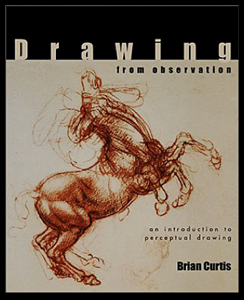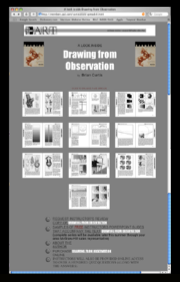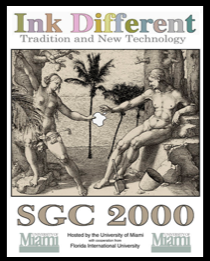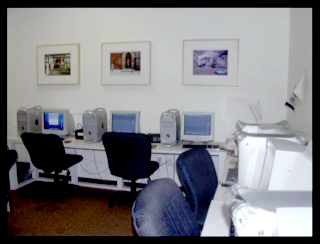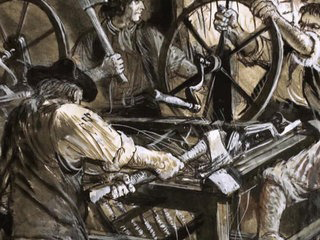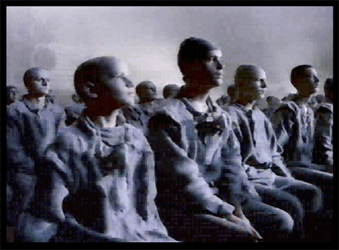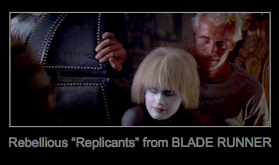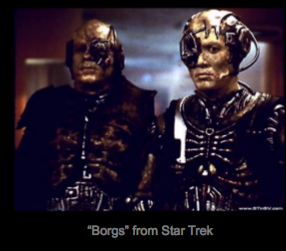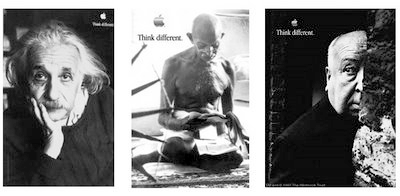 |
|||||||||||||||||
 |
|||||||||||||||||
|
Paper by Brian Curtis, Associate Professor, University of Miami, Coral Gables, for the 2004 SECAC Conference in Minneapolis, MN and again at the 2005 F.A.T.E. Conference in Columbus, Ohio, April 1, 2005 for a panel titled "Getting Wired: Faculty Adapting to a Changing Curriculum" Chaired by Barbara Giorgio, Ball State University
|
|||||||||||||||||
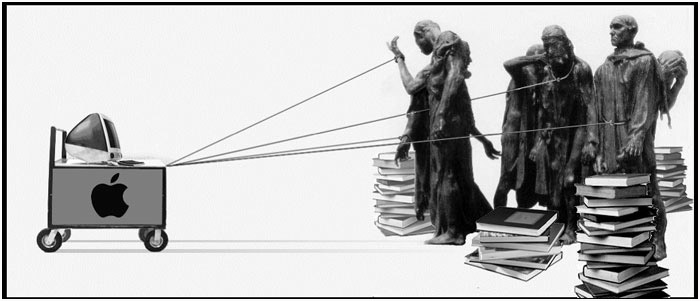 |
|||||||||||||||||
|
To provide a context for the remarks I am about to make I would like to tell you a little bit about my background. I am a representational painter who works in an ambiguous narrative style. While I am certainly not in a position to call myself a computer geek, I do own three MacIntosh computers and have a solid working knowledge of a handful of software applications. My digital technology credentials include: In 1996, as foundations coordinator at UM, I spearheaded development and adoption of “Digital Imaging on the Mac” as a core foundations requirement Recipient of a University of Miami Technology Grant for the purchase of 14 G4 computers for painting, printmaking, and drawing students
I apologize for starting out with this self-centered litany of my all too modest technological accomplishments but, in as much as I am here to criticize the current changes that are reshaping foundations art curricula in the image of digital technology, I think that, in the spirit of full disclosure, it is important for you to be made aware of the level of my technological involvement, such as it is. I guess I should start off by denying that I am a neo-Luddite. Labels, as we saw in the 2004 Presidential race, are all-too-effective tools for stifling informed discussions of important issues, think “Flipflopper".
“The real motive behind the original Luddite uprisings was not hatred of technological advance per se, but a reaction to the way new technology deprived people of their livelihoods, deprived artisans of pride in skilled labour, and herded working people into factory servitude. Technological advance is not the problem; the problem is who owns the technology, and who benefits from the advances.” Taken from http://news.bbc.co.uk/1/hi/special_report/1999/02/99/e-cyclopedia/1243298.stm (No longer available on that site) As I said, I should deny that I am a neo-Luddite but I’m afraid I can’t. With each passing day I find my self more and more in touch with my “inner Luddite” and it is that inner spirit that informs my presentation here today. I am here to offer what I believe is a sorely needed critique of the increasingly widespread trend in art departments across our great land to redefine and reshape foundations training in terms of digital technology and postmodern/contemporary theory. You might find it surprising that I am including postmodern/contemporary theory in my critique since it is nowhere to be found in the panel topic and I won’t have time to address it specifically in my presentation but I believe these two relatively recent arrivals to academia are so inherently bound together in a binary system of pedagogical disruption that they are the Scylla and Charibdys of Academia.
I would like to begin my critique of recent curricula changes by quoting William Rukeyser, a former fellow at Apple Computer and former special assistant to the California Superintendent of Public Instruction: “The promise of technology seems too good to refuse. It also seems too good to be true." (http://www.mrshea.com/misc/tesol/tesol_shack.htm)
Higher education is currently riding the crest of a wave of Techno-euphoria. Computer labs have multiplied faster than increases in tuition. If your home institution is anything like mine I imagine you have seen administrators go weak in the knees at the mere suggestion of integrating state-of-the-art technology into cutting–edge, experimental (think postmodern) academic programs. Administrators become so disoriented hearing this type of proposal that they loose control of their budgetary sphincters and begin to expel substantial sums of money upon all sorts of outlandish potentialities. As I mentioned in my opening remarks, I’ve been personally responsible for several of these technological boondoggles. I am not proud of this fact. I was, as Bob Dylan so poetically stated, “so much older then, but I’m younger than that now.” But seriously, what could be wrong with a computer? It’s only a tool, right? Computers are fun to use and highly entertaining. Computers provide fast access to an ever-expanding volume of free information resources. That can’t be bad, can it? Computers speed up the learning curve and the students love them, right? Not to mention the parents since computers prepare students for the “world of tomorrow” and make them more marketable, right? They provide the job skills necessary for an ever more postmodern and technological world. They connect the students to the global economy and prepare them for participation in the new world order in the Global Village. That has to be a good thing, right? And perhaps most importantly, computers represent a democritizing influence via the free exchange of ideas and commerce in the worldwide electronic marketplace that will lead the peoples of the US and the rest of the world in a steady drumbeat toward freedom. Sure beats having to send our sons and daughters to war. This is the standard list of the virtues of digital technology. It is quite an impressive list of attributes and one that is widely circulated. The real question, however, is whether all or any of it is true. The fact is that these claims have little or no scientific data to back them up. This proof that this list is little more than techno-optimist cheerleading lies in its curious lack of consideration of digital technology’s downside, the kind of consequences that would characterize digital technology to be more like a curse from Pandora’s Box than the wonder tool that is being advertised and sold to us.
And being sold it is. Like the automobile was in the late 1950’s as the pivotal element in the equation for human happiness. This was done by a consortium of car manufacturers, highway construction companies, and oil industries. A solid case can be made that the current wave of techno-euphoria is similarly the result of corporate hucksterism in what is a marketing-saturated, super-consumer society rather than of a thoughtful and reasoned analysis of the impact of computer usage on education, the daily lives of individuals, and society as a whole. Well then, what are some of the less desirable consequences of digital technology? Well, one of the early warning signs is that computers reinforce and compound the unstructured thought processing and learning styles promoted by growing up with TV and computers. Douglas Rushkoff, in his book, Playing the Future, argues that “screenagers” tend to discarded linear logic in favor of a spontaneous outlook that celebrates indeterminancy much the way channel/web surfing does. (http://www.nytimes.com/1996/06/30/magazine/culture-zone-stop-making-sense.html) In the words of G.K. Chesterton our young people are constantly being inundated by a glut of information and they “run the risk of being “blinded, deafened, and mentally paralyzed by a flood of vulgar and tasteless externals leaving no time for leisure, thought, or creation from within themselves.” (http://mereorthodoxy.com/the-dangers-of-uncritically-embracing-new-media-v-5/). As far as the observation that computers help kids learn because they enjoy working on them it is important to remember that when ease and convenience are major factors in determining curricula we are promoting junk learning. When we “dumb down” our expectations to match compromised learning strategies or to match popular culture we are choosing convenience over substance. This is similar to the all too familiar habit of parents relying on the TV to occupy their kids. They know it isn’t really good for them but it does, after all, keep them quiet, and really, how much harm can it do? What we sacrifice when we promote this sort of junk learning are the traditional skills of thinking logically, learning to make qualitative judgments, writing clearly, speaking well, developing perceptual and motor skills, and aesthetic sensitivity through hands-on studio in drawing, painting, printing, sculpting, ceramics, design, and weaving. Without the ability to think and without integrated knowledge from first-hand, real life experience, students are powerless to descriminate the relevant from the irrelevant and the significant from the insignificant in the information glut found on computers. In a cloud of techno-euphoria students come to believe that information is knowledge. They become more passive in their judgements, more alienated from their traditions, more devoid of community.
But that is not how it is supposed to work. Theodore Rozak, in The Cult of Information, admonished us that thinking must always come first in education and that thinking means how to effectively manipulate ideas. To compare them, contrast them, and discriminate among them. All of this is more important than having access to information. Rozak reminds us that the great ideas of a culture have little or nothing to do with information. Take, for example, the idea that all men are created equal. It is not based on information or validated by research. Knowing how to manipulate ideas is what is important. Students don't learn better from computers. They learn best from nature, from other kids, from teachers. Without this ability to manipulate ideas, “screenagers”, when confronted with difficult challenges, are condemned to a life of rolling their eyes and muttering “Whatever!”
The notion that learning is better if it is easy and fun, despite its current vogue, is also not a universally shared belief. Clifford Stoll, a computer pioneer, astronomer, technology critic and author of High Tech Heretic, reminds us, “Most learning isn’t fun. Learning takes work. Discipline. Commitment from both teacher and student. Responsibility - you have to do your homework. There’s no shortcut to a quality education." (Stoll,Clifford, High Tech Heretic) Not surprisingly he takes issue with the unquestioning enthusiasm for and introduction of computers in the classroom at the expense of teachers, materials and facilities, and, above all, common sense. Rudolf Steiner, the founder of the Waldorf Schools, paralleled these sentiments when he said, “I’ve often heard that there must be an education which makes learning a game for children; school must become all joy. The children should laugh all the time and learning will be play. This is the best educational principle to ensure that nothing at all is learned.” (http://www.mrshea.com/misc/tesol/tesol_shack.htm) Now, let’s move on to another issue by way of a postmodern anecdote: On approaching a mother and child a man says, “What a beautiful baby!” and the mother replies, “Oh, that’s nothing, you should see her picture.” One obvious criticisms of computers is their reliance on simulation over hands-on physical manipulation of the world around us. Learning is a broad based emotional, intellectual, and tactile experience. It flourishes best when all five senses are engaged. Certainly we should learn if with our senses and experience it in our muscles and reflexes before substituting something as mechanical and one-dimensional as a computer. Without direct knowledge about ourselves and how we fit into wider natural systems we will be unable to separate the natural from the artificial, real from unreal.
Certain critics of digital technology take a much broader but no less critical view of the effect of digital technology on individuals lives and global society. The late Neil Postman, educator and writer, echoing the visionary filmmaker, Fritz Lang, warned that the USA is dangerously close to a “Technopoly.” According to Postman a technopoly is a system in which technology is granted sovereignty over social institutions and national life. It places its faith in mechanical calculation rather than human judgment thereby depriving man of the common source of humanity and leaving him without moral foundation.
Richard Sclove, political scientist and head of the Loka Institute, directly challenges the internet’s promise to expand individual freedoms. His position revolves around the fact that the Internet is being shaped by commercial interests rather than civic ones. He prediction of a “cybernetic Walmart” whereby online commerce controls absolutely every sector of the economy, including local service providers, such as accountants, insurers, stockbrokers, and lawyers (think outsourcing) becomes more accurate every day. This is bad for democracy. “The antidemocratic implications of the Cybernetic Wal-Mart reach even further. New “stateless” megacorporations are “leaping boundaries” to intimidate labor unions, elude domestic political opposition, threaten meddling government officials with plant closure and capital flight, and “sidestep regulatory hurdles.” The locus of effective political intervention thus shifts toward more distant power centers. Businesses, moreover, are using computer networks to consolidate high-level managerial control over their expanding global operations and corporations are becoming ever more empowered relative to individual workers, trade unions, and even national governments.” I an intriguing article, Jerry Mander, a mass communications critic who had been a highly successful advertising executive addresses the question about who benefits most from the introduction of TV/digital technology. The ultimate goal of economic globalization is a corporate monoculture. The vast majority of global television imagery, as well as film, books, newspapers, entertainment imagery, and internet outlets, is being sent out to hundreds of millions of people by a tiny number of gigantic corporations.
This process is directly assisted by the rules of the WTO and other global institutions that grease the pathways for their investments, takeovers and mergers. We surely know that corporations are pretty excited about the computer revolution, and they keep selling it to us via terms like 'empowerment', creativity, and 'freedom'. The ads show happy monks in Asia, happy children in Africa, happy farmers in Japan, along with an 'A List' of deceased cultural luminaries all joining the Internet revolution. Everyone should 'think different' and eat at McDonald’s.
Well, I’ve run out of time and I haven’t addressed the practical issues of how technology has trampled the landscape of departments with wholesale reassignments of open studio faculty lines from traditional areas to technology areas and in recalculating area budgets based primarily on technology needs. I’ve also failed to address the curricula issues where considerably large blocks of valuable traditional coursework have been excised from the curriculum to allow students the necessary time for learning how to run and maintain computers, operate applications, get input from scanners, and be able to output to printers. And I would have really enjoyed discussing the radicalizing effects that postmodern theory is having on our curriculum. So many topics, so little time. Let me close with the exhortation, “Challenge your students to think. Encourage them to feel. Teach them to care. Instruct them on how to draw, paint, sculpt, model, print, and weave before exiling them to Cyberspace.” We can make a difference. The choice is ours to make. |
|||||||||||||||||
| SITE INDEX | |||||||||||||||||
| email: brian_curtis@mac.com | |||||||||||||||||
| University of Miami Faculty Webpage | |||||||||||||||||
| last updated 05/31/2016 | |||||||||||||||||

